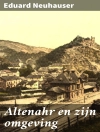In ‘Sicily in Shadow and in Sun: The Earthquake and the American Relief Work, ‘ Maud Howe Elliott presents a poignant narrative detailing the devastating 1908 Messina earthquake and the subsequent American response to the catastrophe. Through her rich and descriptive literary style, Elliott vividly captures the duality of Sicily’s beauty and tragedy, exploring themes of resilience, humanitarianism, and cultural identity. Her firsthand observations and thoughtful reflections are interwoven with historical context, offering readers a compelling account that highlights both the local suffering and the international solidarity that emerged in the wake of disaster. Maud Howe Elliott, an esteemed American writer and social activist, was profoundly influenced by her experiences as a member of a prominent New England family. Her activism, particularly in women’s suffrage and relief efforts, imbued her with a sense of duty to illuminate the plight of marginalized communities. Elliott’s deep empathy and commitment to social justice are palpably reflected in her detailed documentation of relief efforts, showcasing her capacity to bridge personal narrative with broader social themes. This book is a must-read for those interested in disaster response, social change, and the intricate interplay between culture and adversity. Elliott’s nuanced perspective not only enriches our understanding of Sicilian history but also serves as a timeless reminder of our shared humanity in times of crisis.
Об авторе
Maud Howe Elliott (1854–1948) was a distinguished American writer and the daughter of the famous social reformer and founder of the American Red Cross, Julia Ward Howe. Born in an environment suffused with intellectual and artistic pursuits, Elliott’s pedigree was reflected in her array of literary works. Her book ‘Sicily in Shadow and in Sun: The Earthquake and the American Relief Work’ stands as a testament to her deep engagement with social issues and her keen observational skills. The work offers a poignant narrative of the 1908 Messina earthquake’s devastation, and documents the efforts of American philanthropy in the quake’s aftermath. Elliott’s prose, often characterized by its clarity and evocative power, illuminates the struggles of those affected by the disaster and the humanitarian responses it elicited. A recipient of the Pulitzer Prize for her co-authored biography of her mother, ‘Julia Ward Howe, 1819-1910’, Elliott left an indelible mark on early 20th-century American literature through her contributions, which often bridged personal narrative with broader social commentary. Intertwining detail with empathy, her writings continue to be regarded as an important part of the historical literary canon, offering insight into the cultural and social dynamism of her times.












